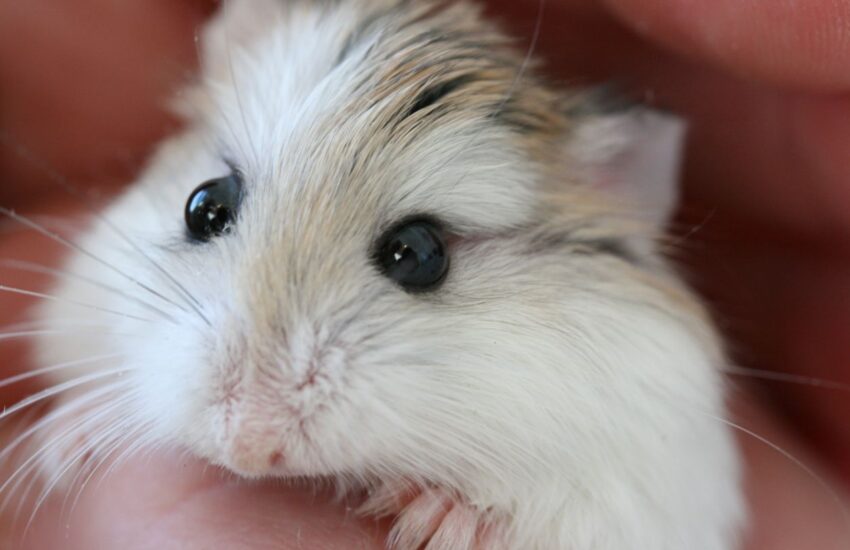Best Hamster Breeds for Families with Allergies
Hamsters make great companions, especially for families looking for a small pet. However, for families dealing with allergies, it’s important to choose the right hamster breed that minimizes potential allergic reactions. In this article, we’ll explore the best hamster breeds tailored for allergens, their caring needs, and practical tips to keep allergens at bay.
Understanding Allergies and Hamsters
Allergies to pets are common, and they can stem from fur, dander, or saliva. **Hamsters**, being small rodents, may not produce the same level of allergens as larger pets but can still affect sensitive individuals. Knowing how to select a hypoallergenic hamster breed is crucial for families, especially those with allergy-prone members. Regular care, cleaning, and maintenance can further help reduce allergic reactions. Always consult an allergist if concerns about allergies arise.
Hypoallergenic Characteristics in Hamsters
When considering **hypoallergenic hamster breeds**, it’s important to understand their characteristics. Syrian hamsters, for instance, tend to produce fewer allergens due to their lower shedding rate. Dwarf hamsters are also great contenders as they typically have shorter fur, which can reduce the amount of dander in the environment. Regularly cleaning their habitats and providing a well-ventilated area can showcase these qualities even further. One effective method is to use dust-free bedding, which can drastically reduce allergens in the air.

Breed Comparison: Syrian vs. Dwarf Hamsters
When it comes to choosing between **Syrian and Dwarf hamsters**, each has unique traits that make them suitable for families with allergies. Syrian hamsters are larger but have a friendly disposition, making them easy to handle. Dwarf hamsters, such as the Roborovski or Campbell’s, tend to be more energetic and social. Importantly, both breeds can make delightful companions while being relatively low in allergens. Families should assess what fits their lifestyle better, keeping in mind the amount of potential allergic reactions they might face.
Caring for Hamsters to Minimize Allergens
Keeping **hamsters healthy** and minimizing allergens involves several proactive strategies in your care routine. Regular cleaning, using hypoallergenic bedding, and maintaining a proper diet can significantly lessen dander and odors. Additionally, creating a schedule for cleaning the hamster’s cage, including washing toys and bedding can help diminish allergens in your home, ensuring a more comfortable environment for those with allergies.
Creating a Safe Cleaning Routine
Your cleaning routine is essential not only for your hamster’s health but also for reducing **allergens**. Use vacuum cleaners with HEPA filters and damp cloths to clean surfaces and the floor around their habitat. Furthermore, consider wearing a mask or gloves while cleaning to minimize direct exposure to allergens. Keeping your living space organized and clutter-free can prevent the accumulation of dust and dander through increased airflow.
Diet and Nutrition Links to Allergens
Feeding your hamster a well-balanced diet can also play a role in **reducing allergens**. A proper diet helps maintain a healthy coat and skin, thus minimizing shedding. Include fresh vegetables and high-quality hamster pellets in their diet to promote better skin health and reduce dander. Always introduce new foods gradually and monitor for any allergic reactions. Remember, in the event of dietary changes or signs of allergies, consulting a veterinarian is a good practice.

Top Hamster Breeds for Allergy-Prone Families
When it comes time to decide on a breed that suits both your family’s lifestyle and allergy concerns, a few hamster breeds stand out. The careful selection of hamsters not only centers around their typical allergenic qualities but also their temperament and care needs.
Siberian Dwarf Hamsters
**Siberian Dwarf Hamsters** are often regarded as one of the best hamster breeds for allergy-prone families. Their short fur leads to less dander and minimal shedding. Furthermore, they are small, lively, and relatively easy to handle, making them an excellent choice for children and first-time pet owners. Their playful nature ensures they engage well with family members while keeping allergens at bay.
Roborovski Hamsters
Another fantastic option is the **Roborovski Hamster**. Known as one of the smallest and most hypoallergenic hamster breeds, Roborovskis hardly produce any allergens and have minimal fur shedding. They are friendly, curious, and often safe for families with small children. Because they are incredibly active, having a spacious cage with engaging toys is essential to keep them entertained and healthy.
Conclusion and Final Thoughts
Choosing the right hamster breed for families with allergies is possible with informed decisions. By considering breeds like the Siberian dwarf and Roborovski hamsters, you can enjoy the companionship and joy these pets bring into your home while minimizing allergy concerns. Careful maintenance and cleaning routines will further ensure that both you and your hamster thrive in a healthy, allergen-free environment.
FAQ
1. Are there truly hypoallergenic hamster breeds?
While there’s no completely hypoallergenic hamster breed, certain breeds like **Dwarf hamsters** do produce fewer allergens, making them suitable for families with allergies. Regular cleaning and proper care can further reduce allergenic effects.
2. How can I clean my hamster’s cage without triggering allergies?
Use a mask and gloves when cleaning to prevent allergen exposure. Opt for a vacuum cleaner with a HEPA filter and dust damp surfaces to minimize allergens. Create a regular cleaning schedule and regularly wash all items in the cage.
3. What type of bedding is best for hypoallergenic hamsters?
Choose **dust-free and hypoallergenic bedding** options, such as paper-based or aspen shavings, which can help control allergens. Avoid cedar and pine shavings, which can irritate allergies.
4. Can hamsters still trigger allergic reactions despite being hypoallergenic?
Yes, even low-allergen breeds can trigger reactions in sensitive individuals. Close monitoring is necessary and seeking advice from an allergist is recommended to ensure comfort in your home.
5. How often should I handle my hamster to reduce allergens?
Regular daily handling can help keep both you and your hamster comfortable. However, if you notice allergy symptoms, limit direct contact and consult with a veterinarian or allergist for better care options.
